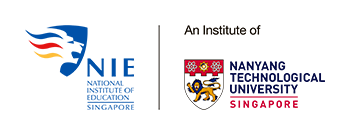
|
|


|

|
|
|
- |
|
|
|
|
Course synopsis |
|
The course aims to prepare teachers for the challenges of developing thinking dispositions in students and developing classes into thinking communities. It builds an understanding of creative and critical thinking processes in highly creative and intellectually gifted learners. It promotes pedagogy that is informed by whole brain research and functioning. Other than examining the 4Ps in creativity—the person, process, product and press, it will discuss the intricacies of the creative-problem solving process and what constitutes a creative product. The development of higher-order analytical thinking, logical thinking, perception, imagination and discovery will be included in discussions. Research on the effectiveness of the use of different models of instruction that promote critical and creative thinking is explored for possible applications. |
|
View More |
Objective |
|
1. Build awareness of the models and strategies that enhance and nurture critical and creative thought, so as to better meet the intellectual and creative needs of high ability learners.
2. Develop curriculum documents such as the scope and sequence for the seamless infusion of critical and creative thinking skills within and across subjects 3. Design instructional units that integrate dimensions of critical and creative thinking with their subject content 4. Appraise and modify classroom instruction so that learning experiences and interactions enculture thinking communities in the classroom 5. Increase the capacity to monitor, assess, and provide feedback during learning so as to promote critical and creative thinking in the high ability learner |
Outline |
For the information of MOE officers: SFEd Area of Practice: Differentiated Instruction SFEd Level of Practice: Leading SFEd Descriptors addressed: Leads and guides fellow teachers in:
Class Schedule: Wednesdays, 6pm to 9pm |
Course fee |
||||||||||||||||||||||||||||||||||||||||||||||||||||||
*MOE Educators include MOE & Direct Hire Staff from Independent, Specialised Independent and Specialised Schools. |
Who should attend |
|
All educators
|